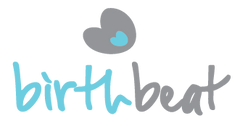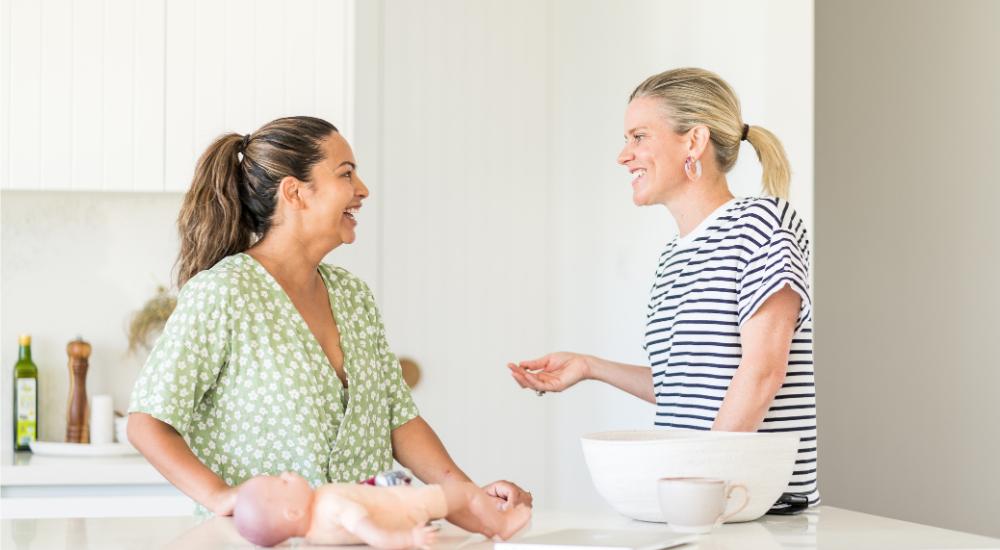Perinatal Mental Health Week 2022
November 6th – 12th is Perinatal Mental Health Week 2022.
In 2005, PANDA created this week to bring awareness to perinatal anxiety and depression. Perinatal anxiety and depression is a serious mental illness that many expecting and new parents experience.Pregnancy through to early parenthood can be a time of so many emotions. It can be exciting, but also challenging, overwhelming, and confusing.
Statistics of perinatal anxiety and depression
So many of these expecting and new parents suffer in silence due to stigma and systematic barriers to seeking help. One of PANDA’s biggest aims is to change this. PANDA Week 2022 is themed ‘Building Your Community of Care’. The focus is about the importance of building your network of care no matter where you sit on the spectrum of perinatal mental health. Because every parent deserves support.
Signs or symptoms of Perinatal Depression & Anxiety
- Panic attacks (a racing heart, palpitations, shortness of breath, shaking or feeling physically ‘detached’ from surroundings).
- Persistent, generalised worry, often focused on fears for the health or wellbeing of bub.
- The development of obsessive or compulsive behaviours.
- Abrupt mood swings.
- Feeling constantly sad, low, or crying for no obvious reason.
- Being nervous, ‘on edge’, or panicky.
- Under or over eating.
- Sleep problems unrelated to bubs needs.
- Extreme lethargy.
- Memory problems or loss of concentration.
My own personal experience with perinatal anxiety and depression
This has led me to reflect on my own experiences with the birth of my two children Polly and Theo. Two completely different babies and two very different journeys. I hope by sharing my experience of perinatal depression & anxiety it will help more new parents and parents-to-be understand that it is OK to not be OK. And most importantly, it’s OK to reach out for help!
Reflecting on my pregnancy with my daughter Polly, who is now 6 years old I remember I was one of those women that pregnancy ‘agreed with’ – glowing, feeling great and eagerly awaiting the arrival of my bundle of joy.
As a midwife, I was quietly confident that I had everything under control. And for the most part, it all went to plan.
As soon as Polly was born the midwife laid her on my chest and told me to offer her the breast. I did and she latched on perfectly the very first time and it was smooth sailing from there. She fed and slept and it was all pretty effortless and easy until at 11 months, when she self-weaned to a sippy cup. True story!
Polly was such an easy baby. So much so that I sometimes found myself bored at home while she slept. That was how I was able to get Birth Beat off the ground with a baby – I had spare time, slept myself and genuinely enjoyed the experience of being a new mum.
Fast forward to my four-year-old son Theo’s birth.
From the moment I found out I was pregnant with Theo I was sick. I vomited daily up until I was about 32 weeks pregnant. I was lethargic, weak and people constantly told me I didn’t look well and that I looked like I had lost weight. I had! I couldn’t keep anything down. It was the complete opposite of my first pregnancy.
Despite a difficult pregnancy, preparing for the birth of my son Theo was actually a great experience. Even as a midwife, I went into my first birth over-confident and naïve, telling my husband not to bother doing antenatal classes as I knew what was going on. How wrong I was! Luckily, the second time around I had been through the process of creating the Birth Beat course and my husband Ross had taken a class and had a far better understanding of what was happening at each stage.
Theo was a big baby, 4.2kgs of adorable chubbiness, but the day of his birth was genuinely enjoyable. Both myself and Ross felt calm and prepared. However, as soon as he was born and placed on my chest, it was a completely different experience to when Polly was born. The midwife told me to offer the breast. As soon as Theo latched on it didn’t feel right. It was uncomfortable and before long that discomfort turned to pain. From night one he seemed to want to feed every 20 minutes or so. A pattern that continued for weeks after his birth. Amidst the seemingly never-ending feeds, Theo needed to be patted and rocked to sleep. He wasn’t sleeping, I wasn’t sleeping, it all started to unravel.
I was hospitalised with a case of mastitis and given IV antibiotics for the painful infection. I suffered two more cases of mastitis in quick succession, each one taking its toll on me physically and emotionally. Still, I persisted with feeding Theo pushing through the pain and frustration I was feeling every time he nursed.
I started getting anxious that I didn’t have enough milk to satisfy him. He wasn’t gaining weight, in fact, he actually started losing weight and my anxiety was crippling – although at the time I didn’t know that’s what it was. To add another level of stress to the whole situation I was diagnosed with nipple thrush and Theo with oral thrush. I eliminated sugar from my diet, commenced treatment for Theo and I as well as adhered to a strict cleaning and hygiene routine to prevent further infections. It was a blur of sleeplessness, pain and overwhelm like nothing I’d ever experienced.
I was struggling to eat, I had an odd physical sensation every time I swallowed food. I was moody and snapped without warning. I felt irritable, lost and helpless. And tired. So, so tired. This wasn’t how it was meant to be.
At our 6-week check-up, I literally had my hand on the door about to leave when the nurse said “we haven’t done your EDPS (Edinburgh Postnatal Depression Scale) test, but you’re fine!” I paused. I could have maintained my brave front, acting to the outside world as if everything was going well and agreed with her. But I wasn’t fine.
“No, I’m actually really not OK.”
It was a hard thing to do. As a midwife in the local public hospital, I knew the community nurses, I didn’t want to let them see me struggling. I wanted to appear like I had everything under control. I also felt some a sense of shame for being a midwife and not coping with my new baby.
Although it was hard, I admitted I was not OK. Eventually, we started comp feeding with formula and Theo started gaining weight again. We went to the local sleep and settling clinic and we slowly got a routine in place. I went to see a psychologist who gave me coping tools and strategies to get through the long days and nights. Little by little things started to improve.
I had two completely different birth, breastfeeding and newborn experiences, and I am grateful for each one. It made me realise from experience that every baby, every mother and every journey is different. It’s made me a better, more empathetic and supportive midwife who is even more committed to educating and supporting parents. It’s also made me a passionate advocate for letting all new and expecting parents know that it’s OK to not be OK.
Finding help and support
Firstly, congratulations if you are reaching out for support. This is your first big step and you should be proud of that. It is so important that you tell someone when you are struggling with your mental health.
There are many people who will care and be there to support you. This may be your partner, parents, siblings, friends. It may also be your health care providers such as your GP or midwife.
Other places to get support:




